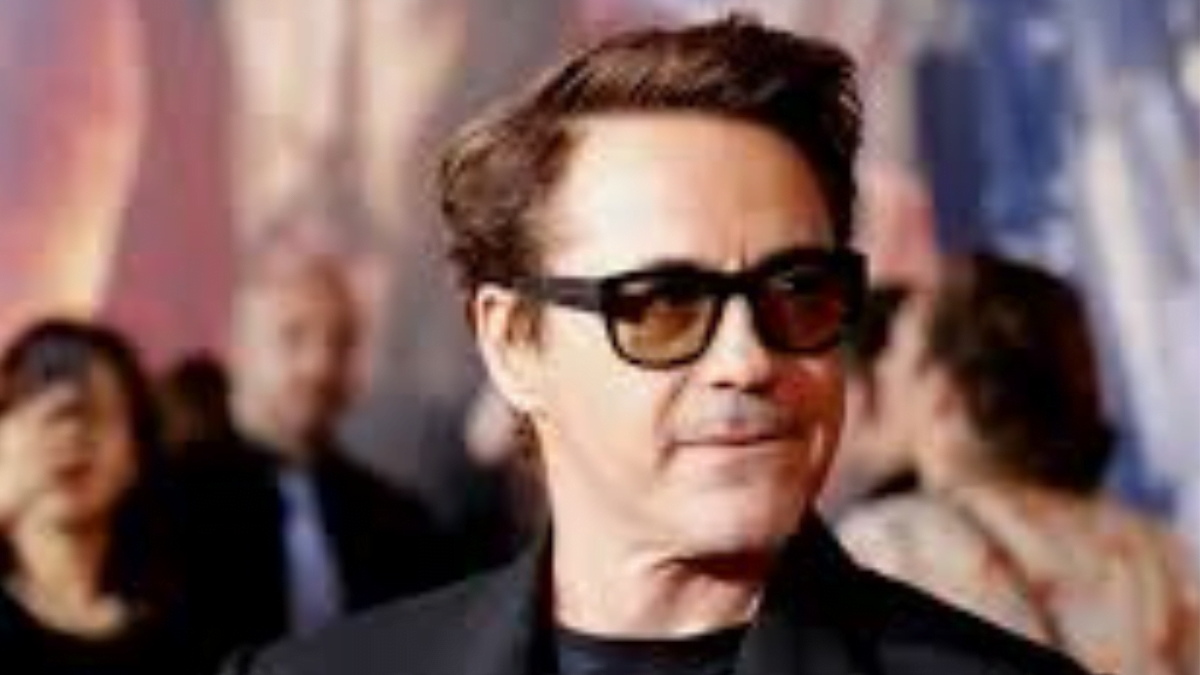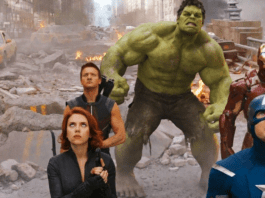Who is Robert Downey Jr?
Robert Downey Jr. emerges as a luminary within the vast constellation of Hollywood’s brightest stars. His journey from early breakthroughs to his iconic embodiment of Iron Man in the Marvel Cinematic Universe epitomizes a trajectory marked by both acclaim and evolution.
Nurtured amidst the bohemian ambiance of New York City’s Greenwich Village, Robert Downey’s artistic lineage laid the groundwork for his foray into the world of acting from an early age. His father, a luminary in underground filmmaking, ignited the spark of performance within him, casting him in his maiden role at a mere five years old. Yet, amid the backdrop of creative expression, Downey’s formative years were shadowed by the specter of substance abuse, weaving a complex tapestry of familial struggle and artistic expression.
Robert Downey Jr.’s journey
Undeterred by the challenges, Robert Downey’s journey into the limelight unfolded as he embarked on a path less traveled, forsaking the traditional corridors of education for the vibrant tapestry of the acting world. Early appearances in cult classics like “Weird Science” and “Less Than Zero” showcased his innate magnetism and multifaceted talent, laying the groundwork for a career that would oscillate between zeniths and nadirs.
The zenith of Robert Downey’s ascent arrived with his portrayal of Charlie Chaplin in the eponymous biopic, a tour de force performance that garnered critical acclaim and heralded a new chapter in his cinematic odyssey. Yet, amidst the crescendo of accolades, the cacophony of personal struggles persisted, as battles with addiction cast a long shadow over his professional triumphs.
The turning tide came with his tenure on the small screen in “Ally McBeal,” a role that not only earned him a Golden Globe but also signaled a phoenix-like resurgence from the ashes of adversity. Mel Gibson’s unwavering support proved instrumental, providing the lifeline needed to resurrect a career on the brink of oblivion.
From there, Robert Downey’s trajectory soared to stratospheric heights, propelled by his embodiment of the iconic Iron Man in the Marvel Cinematic Universe. His indelible mark on the silver screen, juxtaposed against a backdrop of diverse roles ranging from Sherlock Holmes to poignant portrayals in “The Judge” and “Oppenheimer,” underscored his versatility as an actor and his tenacity as a performer.
Personal life

Beyond the glitz and glamour of the silver screen, Robert Downey’s narrative unfolded with its share of triumphs and tribulations. Marriages to Sarah Jessica Parker and Deborah Falconer bore witness to the tumult of addiction, yet through the crucible of adversity emerged the phoenix of redemption. Robert Downey’s journey toward sobriety stands as a testament to the transformative power of resilience and the unwavering support of loved ones.
As the curtains rise on each new chapter of Robert Downey’s cinematic saga, his legacy looms large as a beacon of inspiration and resilience. His ability to transcend the confines of adversity and reinvent himself time and again speaks not only to his talent as an actor but also to his indomitable spirit as a human being.
In a filmography teeming with iconic roles and a pantheon adorned with prestigious accolades, Robert Downey Jr. stands as a titan among titans, a colossus whose influence transcends the silver screen. From the halls of childhood dreams to the zenith of Hollywood stardom, Robert Downey’s journey epitomizes the transformative power of resilience, reminding us that sometimes, the greatest stories are those of redemption and growth.
Robert Downey Jr.’s cinematic odyssey is a tapestry woven with threads of remarkable successes, as illuminated by the ratings of Rotten Tomatoes. From the uproarious satire of “Tropic Thunder” to the poignant portrayal in “Oppenheimer,” and the enigmatic charm of the “Sherlock Holmes” series, Robert Downey has unfailingly delivered performances that resonate with audiences worldwide.
Yet, it’s perhaps his embodiment of Tony Stark, the indomitable Iron Man in the Marvel Studios franchise, that has etched him into the annals of cinematic history. His contributions to blockbuster hits like “Captain America: Civil War” and the “Avengers” series have propelled global box office earnings to a staggering $14 billion, securing his status as the third highest-grossing actor of all time according to The Numbers.
Beyond the glare of the silver screen lies a narrative of resilience and redemption that defines Downey’s journey. In 2003, fate intervened on the set of “Gothika,” where he crossed paths with producer Susan Downey. Despite initial hesitations, their connection blossomed into a love story that culminated in marriage. Their enduring partnership, punctuated by the joy of parenthood, serves as a testament to the transformative power of love and companionship.
Friendship has also been a guiding force in Downey’s life, none more profound than his bond with Mel Gibson. Through tumultuous times, Downey stood steadfast by Gibson’s side, offering a beacon of friendship and solidarity. Their camaraderie, forged in the crucible of shared experiences, exemplifies the resilience of the human spirit in the face of adversity.
Downey’s career trajectory has been a rollercoaster ride of triumphs and setbacks, marked by moments of glory and despair. His portrayal of Charlie Chaplin in the eponymous biopic earned him critical acclaim and an Academy Award nomination, yet behind the scenes, he grappled with demons of addiction that threatened to derail his promising career.
However, from the depths of despair emerged a phoenix reborn. His role in “Ally McBeal” marked a turning point, earning him a Golden Globe and heralding a resurgence in his career. Undeterred by setbacks, Downey’s unwavering dedication to his craft propelled him forward, leading to a prolific body of work that showcased his unparalleled range and versatility as an actor.
The zenith of Downey’s cinematic journey arrived with his portrayal of Tony Stark/Iron Man. The character not only catapulted him to global superstardom but also revolutionized the superhero genre. Downey’s wit, charisma, and humanity breathed life into the iconic role, endearing him to audiences of all ages and cementing his legacy as a cultural icon.
In recent years, Downey has continued to push the boundaries of his craft with roles that challenge convention and inspire awe. His portrayal of Lewis Strauss in “Oppenheimer” earned him widespread acclaim, culminating in an Oscar and a Golden Globe Award. The film itself, a masterpiece of storytelling and technical prowess, stands as a testament to Downey’s enduring impact and legacy in cinema, reaffirming his status as a titan among titans in the annals of Hollywood history.
As Robert Downey Jr.’s journey in Hollywood unfolds, one thing stands clear: his indelible mark on the silver screen is matched only by his resilience in the face of adversity. Through triumphs and trials, he has remained steadfast in his pursuit of excellence, leaving an indelible imprint on the hearts and minds of audiences around the world. Robert Downey Jr. isn’t just an actor; he’s a cinematic icon, a beacon of hope, and a testament to the power of the human spirit to overcome even the greatest of challenges.
Oppenheimer success story
The story of Oppenheimer and the atomic bomb is one of intrigue, moral dilemmas, and the relentless pursuit of scientific discovery. Dr. J. Robert Oppenheimer, a brilliant physicist, found himself at the center of one of the most significant events in human history when he became involved in nuclear research in 1941. His journey, as depicted in the biopic “Oppenheimer,” offers a gripping narrative that delves into the complexities of his character and the tumultuous era in which he lived.
Adapted from the Pulitzer Prize-winning biography by Kai Bird and Martin Sherwin, “Oppenheimer,” directed by Christopher Nolan, paints a vivid portrait of the enigmatic scientist. Played by Cillian Murphy, Oppenheimer is depicted as a visionary leader grappling with the moral implications of his work. From his early days as a university student to his pivotal role as director of the Los Alamos Laboratory during the Manhattan Project, the film chronicles Oppenheimer’s journey with depth and nuance.
Central to Oppenheimer’s story are his relationships with key figures in his life. Emily Blunt portrays his wife, Kitty, while Florence Pugh embodies Jean Tatlock, his lover with ties to the Communist Party of the United States of America. Matt Damon’s portrayal of U.S. Army General Leslie Richard Groves adds another layer of complexity to Oppenheimer’s narrative, highlighting the tensions between scientific ambition and military oversight.
Throughout the film, Oppenheimer’s internal struggles are juxtaposed with external challenges, including government hearings and accusations of communist sympathies. Robert Downey Jr. delivers a compelling performance as Lewis Strauss, an antagonist who clashes with Oppenheimer over nuclear arms policy. The tension between Oppenheimer and Strauss underscores the ethical dilemmas at the heart of the atomic age, as well as the personal sacrifices made in the pursuit of scientific progress.
Critics lauded “Oppenheimer” for its gripping storytelling, stunning visuals, and stellar performances. Cillian Murphy’s portrayal of the titular character earned him widespread acclaim, while Nolan’s direction and Ludwig Göransson’s musical score added layers of depth to the narrative. Despite some critiques regarding the development of certain characters, the film’s overall impact was undeniable.
Oscar award

Three decades after his first Academy Award nomination, Robert Downey Jr. secured his first Oscar, winning the accolade for Best Supporting Actor for his portrayal of Rear Adm. Lewis Strauss in “Oppenheimer,” a role lauded as one of his most outstanding performances in recent years.
At the Academy Awards, “Oppenheimer” received a staggering 13 nominations and took home seven awards, including Best Actor for Murphy, Best Director for Nolan, and Best Picture. The film’s success at the box office further cemented its status as a cinematic triumph, grossing over $300 million domestically and $600 million internationally.
Beyond its critical and commercial success, “Oppenheimer” sparked conversations about the ethical implications of scientific discovery and the enduring legacy of those who shaped the atomic age. By shedding light on the complexities of Oppenheimer’s character and the moral dilemmas he faced, the film invites audiences to ponder the human cost of technological advancement and the responsibility that comes with wielding such power.
In the end, “Oppenheimer” stands as a testament to the power of cinema to illuminate the past, provoke thought, and inspire reflection. Through its captivating storytelling and memorable performances, the film offers a compelling glimpse into one of the most consequential chapters in human history, reminding us of the enduring relevance of Oppenheimer’s legacy in our modern world.
Discover more from currentnewschannel.com
Subscribe to get the latest posts sent to your email.












